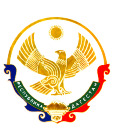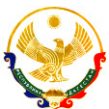
Ethnic-Based Governing System is Increasing Tensions in Dagestan
Publication: North Caucasus Weekly Volume: 10 Issue: 6
By:

On February 2, following a series of highly unusual events, the newly appointed head of the Dagestani branch of the Russian federal tax service was prevented from taking his position. Vladimir Radchenko and his superior Pyotr Kovalev were not even allowed to cross the administrative border into Dagestan: they were told that the Dagestani police could not guarantee their safety. At the same time, several hundred people in Makhachkala protested against the new appointment (Kommersant, February 3).
Kommersant claimed that the protests were informally supported by the Dagestani government, which had not approved the new appointment. The popular opposition was quoted as demanding the appointment of a Lezgin, which is one of Dagestan’s major ethnic groups and inhabits the republic’s south and the northern part of neighboring Azerbaijan.
It is very common in Dagestan, a republic that is home to dozens of ethnicities, for top government positions to be assigned to certain ethnic groups. So when the Lezgin head of the tax office was dismissed, the Lezgins may have expected several other prominent Lezgin candidates to be considered to replace him. The son of Dagestan’s president, Gadzhimurad Aliev, is deputy head of the tax office and reportedly quarreled with Radchenko, but is not considered among the candidates for the position (Kommersant, February 9).
Prior to his appointment, Radchenko served for several years as head of the tax office in the North Caucasian republic of Karachaevo-Cherkessia, and then briefly held a position in Moscow.
The power of ethnic and clan structures in Dagestan is extremely pervasive at all levels, although it is not absolute, the system is not limited to top positions in the government but is spread throughout the society. One frequently encounters cases like that of the major library in Makhachkala, all of its employees—from top to bottom—share the same ethnicity with its head.
The idea that every major ethnicity should be proportionally represented in the government triumphed during the lengthy period of Dagestan’s previous leader, Magomedali Magomedov. When they ran out of suitable positions for every large ethnicity and respectable clan, Dagestan’s authorities have not hesitated to design parallel governing bodies. For instance, for years now there has been a Dagestani republican Ministry of Justice in existence alongside with the federal branch of the Ministry of Justice.
When Mukhu Aliev replaced Magomedov in 2006, the new president vowed to reform the appointment system, which many lamented as outdated and corrupt. However, the concept of an ethnic power balance in the republic has by no means been abandoned. In an interview with Kommersant, the Dagestani president’s spokesman, Rasul Khaibullaev, admitted that the system of ethnic quotas for government positions was being adhered to, even though he denied that there are government positions that are permanently assigned to any single ethnicity (Kommersant, February 3).
The story involving the new head of Dagestan’s tax service did not end at this point. After Radchenko managed to get into the republic, unknown suspects went straight to his office on February 6, put a gun in his back and strongly urged him to leave the republic. On February 9, protestors again prevented Radchenko from entering the tax service building in Makhachkala (Gazeta.ru, February 7-9, 2009).
While the Russian government claims to have strengthened governance over the country’s regions during Vladimir Putin’s reign, it appears that when it comes to the vital interests of the elites in certain regions, some of them are willing and able to counter Moscow’s pressure.
The situation in Dagestan is further aggravated by the low-grade violence that plagues the republic. Scores of policemen, officials and Islamic insurgents die in fighting in the republic each year. While this is a negative factor in and of itself, the Dagestani authorities can use security issues as a pretext for applying looser rules to themselves, as other republics in the North Caucasus have done in the past.
In spite of being a highly multiethnic republic, Dagestan did not experience substantial conflict between different ethnicities in the 1990s, unlike the much less ethnically diverse republics of North Ossetia, Kabardino-Balkaria and Karachaevo-Cherkessia, which experienced ethnic clashes of varying degrees during that period. Analysts have pointed out the matrix that holds Dagestan together with relative ease is the Islamic Umma—the territorial community of Muslims that unites all ethnicities living on the same territory and helps moderate interethnic rifts.
The issue of the tax official’s appointment is turning into a major struggle between Moscow and Makhachkala, but neither side is likely to make a decisive move to resolve the crisis. Moscow is afraid to spark too much violence and possibly lose face, while Dagestani officials also fear for their long term well-being: after all, the president of the republic is appointed by Moscow. If all else fails, Moscow will still be able to play one political group against the other in this diverse republic.
Yet—in the most recent crisis—instead of employing the usual tactics of a complex political management game, Moscow has opted for a brute appointment action. This may indicate one of the downsides of the contemporary semi-authoritarian regime in Russia, which not only fails to receive proper feedback from the general population and subordinates, but is also unaware of the real mood on the ground and therefore unable to predict the reaction to its own moves.




